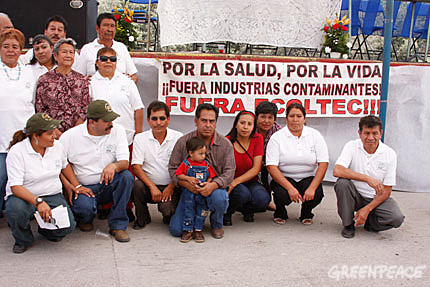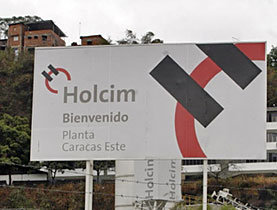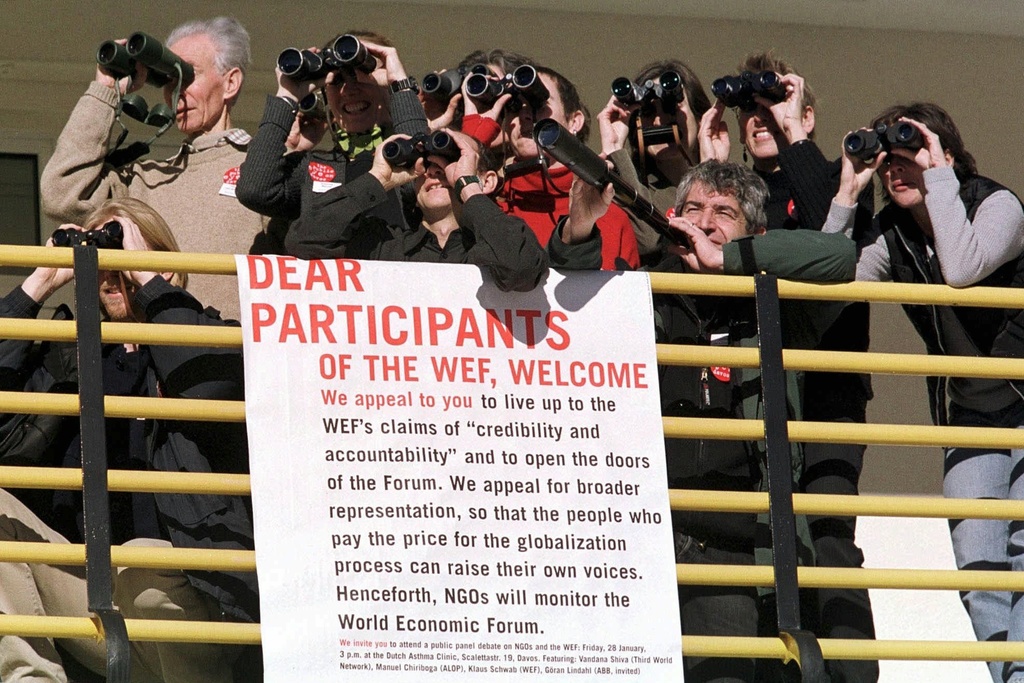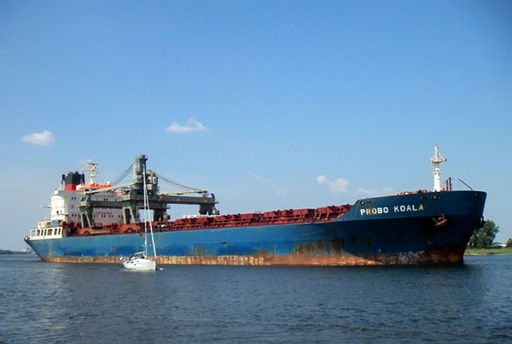Holcim comes under fire in Mexico

A civil movement in Apaxco, Mexico, has blockaded the factory of a subsidiary of the Swiss Holcim concern, blaming it for an outbreak of poisoning cases.
The world number two cement maker denies the accusation.
A survey by the independent Centre for Diagnosis and Alternatives for those Affected by Toxic Substances (Cedaat) reveals symptoms including headaches, eye irritation and sore throat among local residents. According to Cedaat, 86 per cent of 305 people examined showed signs of acute poisoning.
Cedaat also documented serious memory and concentration losses among schoolchildren aged nine on average.
“We are dealing here with a complex problem,” said Arturo de Leon, a doctor at the National Autonomous University of Mexico, who led the investigation.
“People are right to complain, because their health has been damaged.”
Eleven labourers working at a sewage plant two kilometers from the Ecoltec factory died in March 2009. According to official reports, they drowned. But the local civil movement believes they fell victim to poison gases which they breathed in as they worked.
The non-profit health organisation, Pro Salud, accuses Ecoltec of having laid illegal drainage pipes which carried effluent from Mexico City into the River Salado.
Roland Walker, spokesman for Holcim, categorically rejects the allegation. He says the national water commission CONAGUA has confirmed that Ecoltec has no connection with an external sewage system.
“In that case, Holcim cannot be held accountable for the deaths of the labourers,” Walker added.
Chemical leaks
Just a few weeks later there were two incidents, one after the other, involving leaks of ethyl acrylate, which causes redness, pain and burns on the skin and leads to throat and stomach pains as well as vomiting. Around 30,000 people were affected.
“My throat hurt and my eyes were red,” said local resident Inés Martinez.
Walker refers to scientific information from the World Health Organisation and other international bodies that he says shows that the concentration and duration of emissions was insufficient to have provoked these symptoms.
The local people saw it differently: they formed a civil movement and blockaded the factory doors, bringing work to a halt.
Since 2003 Ecoltec in Apaxco has processed batteries, car tyres and industrial waste into fuel to power the local cement factories. The operation is in a region with a high density of chemical plants.
The poisons released into the atmosphere by these factories raise the risk of cancer for local residents.
Antonio Gil, who worked for the Swiss subsidiary for 25 years, blames the death of his seven-year-old son from leukaemia on genetic damage. The boy took part in a cancer study by the Mexican institute of social insurance. Three years after his death, Gil is still waiting for the result of that study.
Recycling not always green
Recycling is often falsely believed to be an environmentally friendly process, says Fernando Bejarano of Caata, a non-governmental organisation which monitors the appliance of the Stockholm Convention on the banning and limitation of persistent organic pollutants, signed in 2001.
Ecoltec is not the only environmental offender in the region. The 115 or so industrial plants include a number of cement works which meet their energy needs by burning old tyres. From 2015 the state-run Pemex petroleum enterprise will also open a refinery in the area.
Walker asserts that the Ecoltec factory is run correctly in accordance with the standards in force, “just like factories in Switzerland”. Holcim is setting up an independent investigatory commission to examine what effects the Ecoltec plant is having on the environment and health of the neighbouring settlements. The results are expected this year.
Should the study produce a result which is positive for Ecoltec, Holcim plans to resume work at the factory. But for now Ecoltec’s licence has not been extended by the state prosecutor’s office for environmental protection.
Members of Pro Salud have met many times with Patricio Patron, the state prosecutor. Walker says Holcim would also like to enter dialogue with the civil movement.
Pro Salud is continuing the blockade. And the National Autonomous University of Mexico has announced its own investigation.
Meanwhile Ceedat should this month publish the results of its investigation into the effects of the factory on local health.
Emilio Godoy and Florian Blumer, InfoSud and swissinfo.ch (Adapted from German by Morven McLean)
With an annual production of more than 200 million tonnes in 2009, Holcim Ltd is one of the world’s biggest cement producers.
Holcime has its headquarters in Jona in canton St Gallen.
It specialises in the production of building materials and in trade.
The enterprise was founded in Holderbank in canton Aargau in 1912, and today has a workforce of about 80,000 working in more than 70 countries.
It has a disputed record as far as ecological and social sustainability is concerned.
Holcim was cited as a model at the 2008 Davos World Economic Forum.
But at the same time it was nominated for a Public Eye Award – a kind of anti-prize – for its “unusually low wages” and “questionable land acquisitions.”
In 2003 Holcim set up a foundation to encourage sustainable architecture.
Mexico’s National Water Commission, Conangua, in October 2010 cleared Holcim of any wrongdoing in the poisoning cases in Apaxco.
It said in a statement sent to swissinfo.ch there was no infrastructure at Ecoltec facilities “for discharging residual water into the receiving bodies of national property, including the subsoil”.
Therefore it was “impossible” for Ecoltec to have discharged residual water into Mexico’s public sewage system.
(Adapted from German by Morven McLean)

In compliance with the JTI standards
More: SWI swissinfo.ch certified by the Journalism Trust Initiative



You can find an overview of ongoing debates with our journalists here. Please join us!
If you want to start a conversation about a topic raised in this article or want to report factual errors, email us at english@swissinfo.ch.